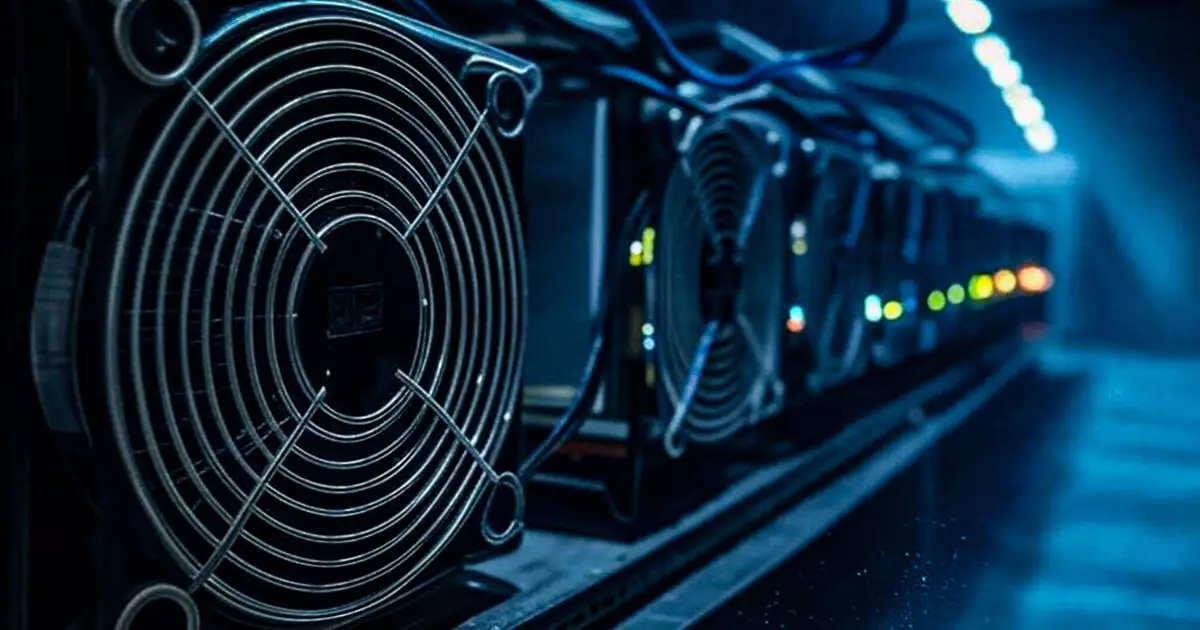The landscape of cryptocurrency mining in the United States is currently facing significant hurdles, particularly regarding the procurement of crucial ASIC (Application-Specific Integrated Circuit) mining hardware. A recent article by Bloomberg News highlights the increased scrutiny from U.S. Customs and Border Protection (CBP) that has led to delays in shipments of Bitcoin mining rigs, primarily from Bitmain, a dominant player in the global market. This scrutiny coincides with heightened trade tensions between the United States and China, further complicating the operations of American miners. Such ramifications not only disrupt established supply chains but also raise serious questions about the future viability of crypto mining in the U.S.
Bitmain is estimated to control approximately 90% of the market for specialized Bitcoin mining machinery. The recent uptick in CBP inspections has raised alarms within the industry, as mining operations rely heavily on timely and affordable access to these specialized rigs. The timing of these customs delays coincides with the U.S. Commerce Department’s blacklisting of certain firms linked to Bitmain, illustrating a broader strategy to combat perceived technological threats from China. This is emblematic of a growing mistrust that may hinder the ability of U.S. miners to compete effectively on a global scale.
Economic Consequences: Tariffs and Market Dynamics
The ramifications of the U.S. government’s increased scrutiny extend beyond logistical delays to significant economic implications. In recent months, tensions have spiked with the imposition of new tariffs on Chinese goods, including an additional 10% duty on imports announced by former President Donald Trump. As a result, the price of mining hardware has escalated, leading to a chilling effect on the expansion plans of many mining firms. Industry leaders like Taras Kulyk, the CEO of Synteq Digital, have voiced concerns that if these tariffs continue unabated, it would effectively stall the importation of next-gen mining equipment, making it infeasible for U.S. operations to procure the tools necessary for competitive mining.
Statistics from the CBP reveal a staggering decline—nearly a 65% year-over-year drop—in the gross weight of imported Bitcoin mining rigs and accessories. This decline indicates not just an interruption in the availability of new equipment but also reflects an overall contraction in the business environment for crypto miners in the United States. Firms like Bit Digital have experienced shipment delays, and while some setbacks may seem minor in isolation, these cumulative challenges threaten the operational viability of the entire sector.
Competition and the Evolution of the Mining Landscape
As U.S. miners grapple with delayed shipments and escalating costs, the competitive landscape within the cryptocurrency mining industry is shifting. As a direct consequence of these challenges, firms are beginning to explore alternative solutions to mitigate the negative impacts. For example, there is an emerging trend toward domestic production. Bitmain has initiated a new production line within the U.S. to alleviate import-related stresses, which may provide U.S. miners with accessible options for streamlined operations. This pivot toward localized manufacturing underscores a significant adaptive response aimed at minimizing the risks associated with international trade disputes.
Moreover, the heat from intensified competition is palpable, especially as companies like MicroBT from China and California-based Auradine emerge as formidable contenders. The pressure on Bitmain from these competitors may serve as a wake-up call for U.S. miners, who must consider diversifying their equipment sources to avoid over-reliance on a single supplier. As the industry continues evolving, genuinely innovative strategies will be essential to navigate the uncertain waters ahead.
The current environment for U.S.-based crypto miners is saturated with uncertainty, characterized by import delays, regulatory complexities, and economic pressures stemming from tariffs. As these challenges continue to unfold, the ability of mining firms to adapt quickly will be critical in shaping their competitive edge. With the potential for significant market shifts on the horizon, innovation and diversification in both equipment sourcing and operational strategies are necessary to ensure the long-term sustainability of the U.S. cryptocurrency mining sector. The road ahead may be fraught with challenges, but the industry’s resilience will ultimately determine its trajectory in this rapidly evolving digital landscape.

